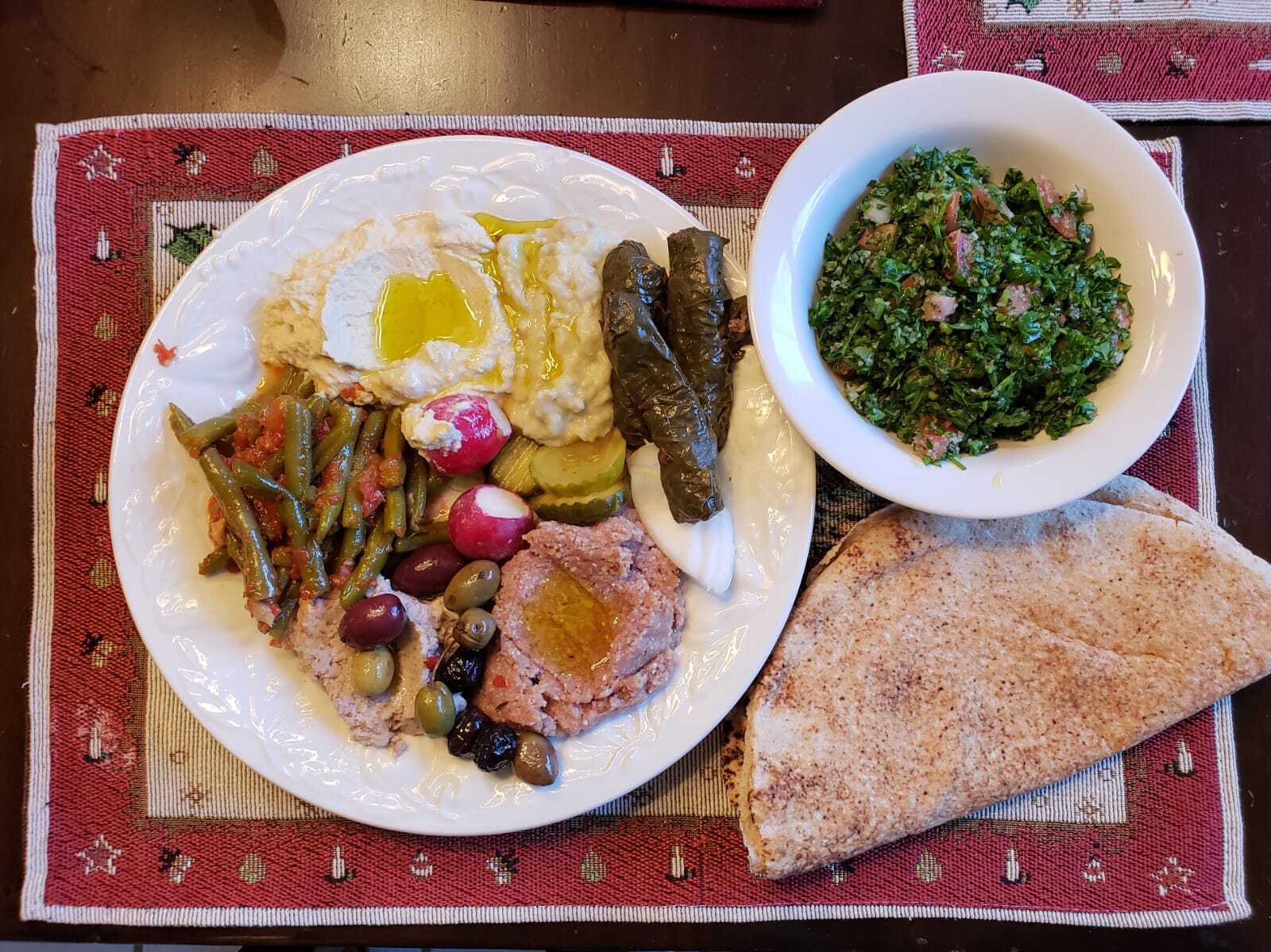
The pandemic has prompted a surge in cooking as people spend more time at home and are wary of going out. Some have taken up cooking as a hobby, while others have resorted to it as something even more vital. I myself have spent more time in the kitchen since the pandemic broke out, spatula and saltshaker in hand, than the rest of my life put together. I find cooking to be viscerally satisfying and an opportunity to create meaningful experiences with those around me. Growth in this area has beyond doubt been one of the pandemic’s biggest legacies in my life.
This backstory motivated me to reach out to my friend and travel companion, Frankie Isabelle. When he isn’t doing bicep curls or philosophizing about the state of world affairs, there is a good probability you can find Frankie in the kitchen cooking up some fire. Frankie has a reputation in our friend group as “the best cook of the bunch” and is known for making lavish preparations, complete with herbal tea, spice-induced aromatherapy, and ethnic cuisine. He contends that if cooking for you is all about the eating, then you may be missing the point. Frankie shares his experience, gleaned from his upbringing, travel, and observation, that could transform the way you view one of planet earth’s most ancient arts.
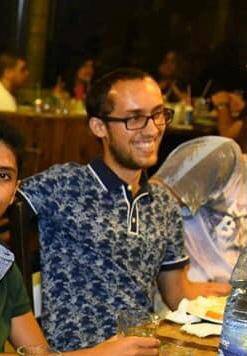
Tell the people a little bit about your background.
I’m the oldest of three brothers. I come from a Mediterranean background. My mother’s family is Lebanese. My father’s family is Italian and Irish. A friend of mine always jokes that the Irish are the only Mediterranean people north of France. I was born in strip-mall hell, Columbus, Ohio, which was really not such a bad place before all the yuppie gentrification projections turned the city into a giant shopping mall. These days they say that Columbus will be a Smart City. I guess that means it will have dumb residents.
In some Middle Eastern households, the kitchen is considered a feminine space. How does that stereotype square with your experience growing up in the US with an ethnically Lebanese mom?
I have never experienced the kitchen as a strictly feminine space. One thing I have noticed with the women in my family is that they do not like anyone near the kitchen when they are cooking. Asides from this, my mom was the breakfast specialist, and my father seemed to enjoy cooking, as well. In any case, he was always the grill master, and often cooked dinner. Growing up, both of my parents worked long hours, and I often had to fend for myself. Nevertheless, I do appreciate when people make me food, and I feel especially gratified when a woman makes me food.
When I was 17 years-old—and with the infinite wisdom of a 17 year-old—I decided to become a vegan. Nobody in my family was very interested in cooking vegan. Fortunately for me, Lebanese cuisine is easily adapted to a vegan diet, so I didn’t have a very difficult time at family meals. I’m talking about Loubieh bi Zeit (green beans in olive oil); Tabbouleh (vegetarian salad); Fattoush (bread-based salad); Bamieh (okra); and Warak Enab (stuffed grape leaves)—all mainstays of any Levantine kitchen. The problem was that this food was never enough to maintain my weight, and so I had to learn creative strategies for satisfying my body’s needs. This is where my interest in cooking really took off.
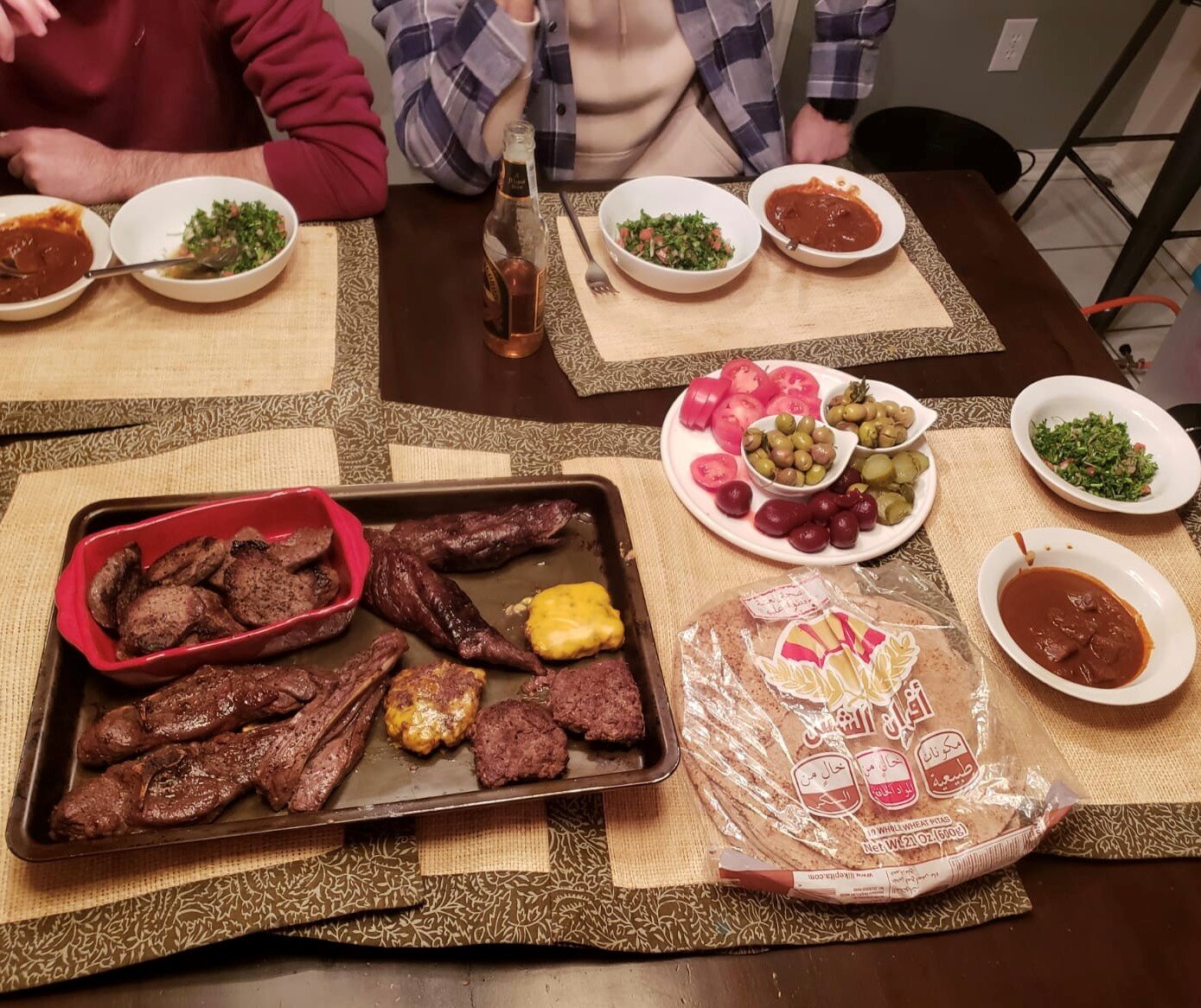
Most people assume that vegans are health-conscious people. All right–fair enough–but that doesn’t mean they want to eat limp kale for every meal. So, the question for me was really, how I do I create savory dishes that pack the same punch as animal based foods? Now that I’m no longer vegan, I still love to cook, but for a different reason: most of the Frankenfood for sale at restaurants and grocers has little nutritional value and is often toxic. Cooking our own food affords us greater control over the quality.
What makes a successful experience in the kitchen?
My best experiences in the kitchen are when I’m able to be creative with what’s at hand. And the only way for that to happen is to take risks, make mistakes, and improvise. With enough time you will be able to establish your preferred flavor profiles. My go-to consists of lemon, salt, pepper, onions, and garlic. As a cook, you will need to discover what combinations work best for you.
I do consult recipes because I am curious how certain things are made, but I am never constrained by them. A lot of people don’t cook because they lack the knowledge or are afraid to mess up, and there’s no excuse for either. If you feel uncomfortable, plan ahead so that you have what you need. Personally, I’ve never been a rule follower, and nobody in my family could ever give me any straightforward answers when I asked them how they made a particular dish. It was always, “I don’t know, I’ve made this my whole life,” or “a little bit of this and a pinch of that,” or “taste it as you go”.
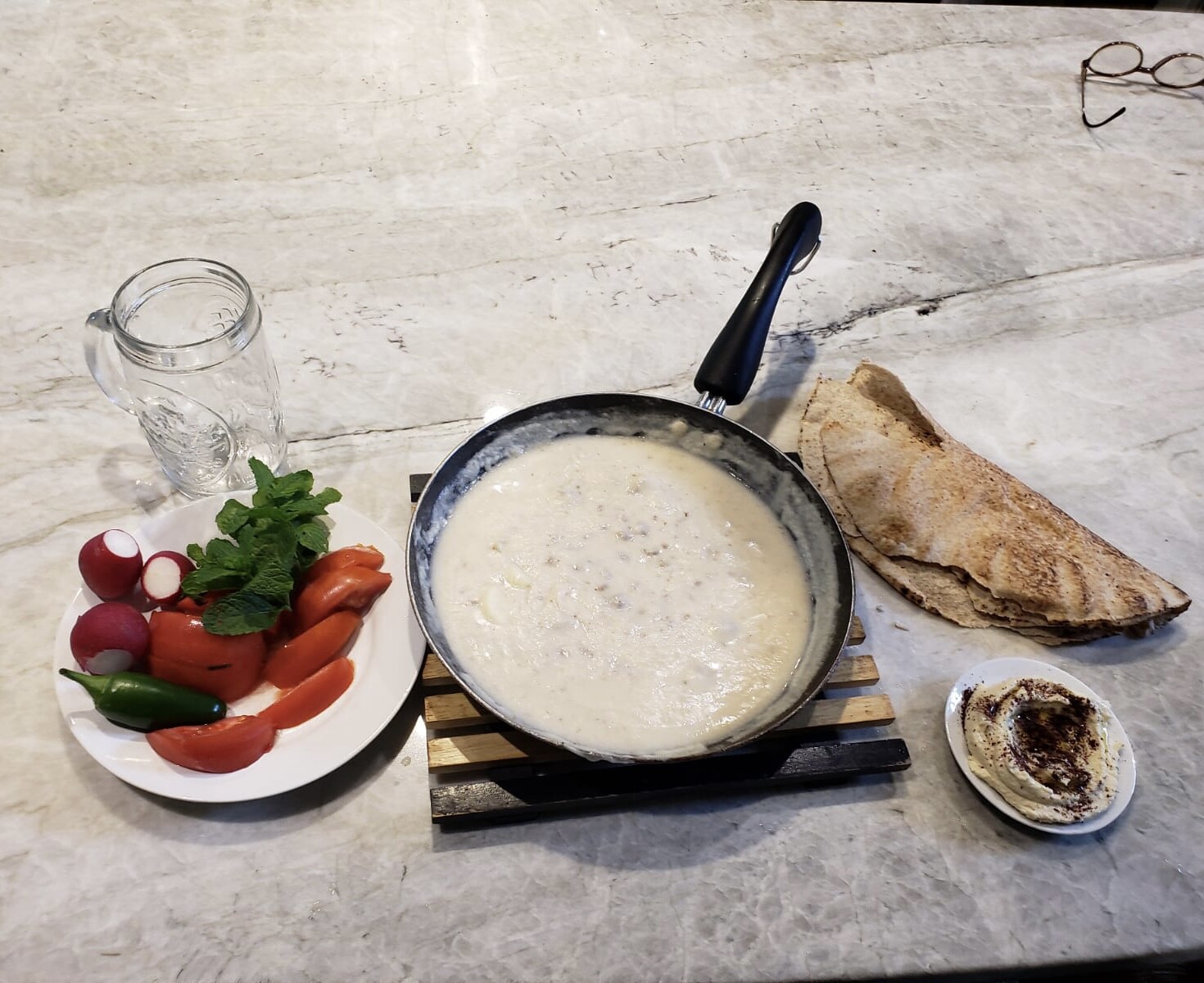
For some people, cooking is transactional. They cook in order to eat. You, on the other hand, take a more holistic view. Can you speak to the psychological or social benefits of cooking?
When we develop the capacity to realize our desires in the world around us, we become more confident and aware of our own needs and interests. The same thing applies to cooking. Any time you eliminate the gap between production and consumption, you are moving in the direction of health.
The best part about cooking is the meal, and not just the eating. I use the word meal because it implies a social element. Sharing food is a way for us to reconnect with our communal nature and to make contact with other vital needs that are ignored or considered less than “essential” by the modern world. In my experience, the happiest cultures recognize the implicit connection between social harmony and shared meals. Take the Mediterranean world, for example. Hosts take the initiative, and guests are not allowed to self-serve. The goal is to establish a rapport and to break down the barriers that stand in the way of genuine connections. Would you like coffee or tea? How does the food taste? Is it salty enough? Sweet enough? Sour enough? In the context of a meal, valuable insight can be gained. Do they eat slow or fast? Do they put their elbows on the table? Are they particular or easygoing? And so, in these cultures, food and its prerequisites are a socially meaningful experience, and cooking can be a tool to create the connections that are so important to our well-being as a species.
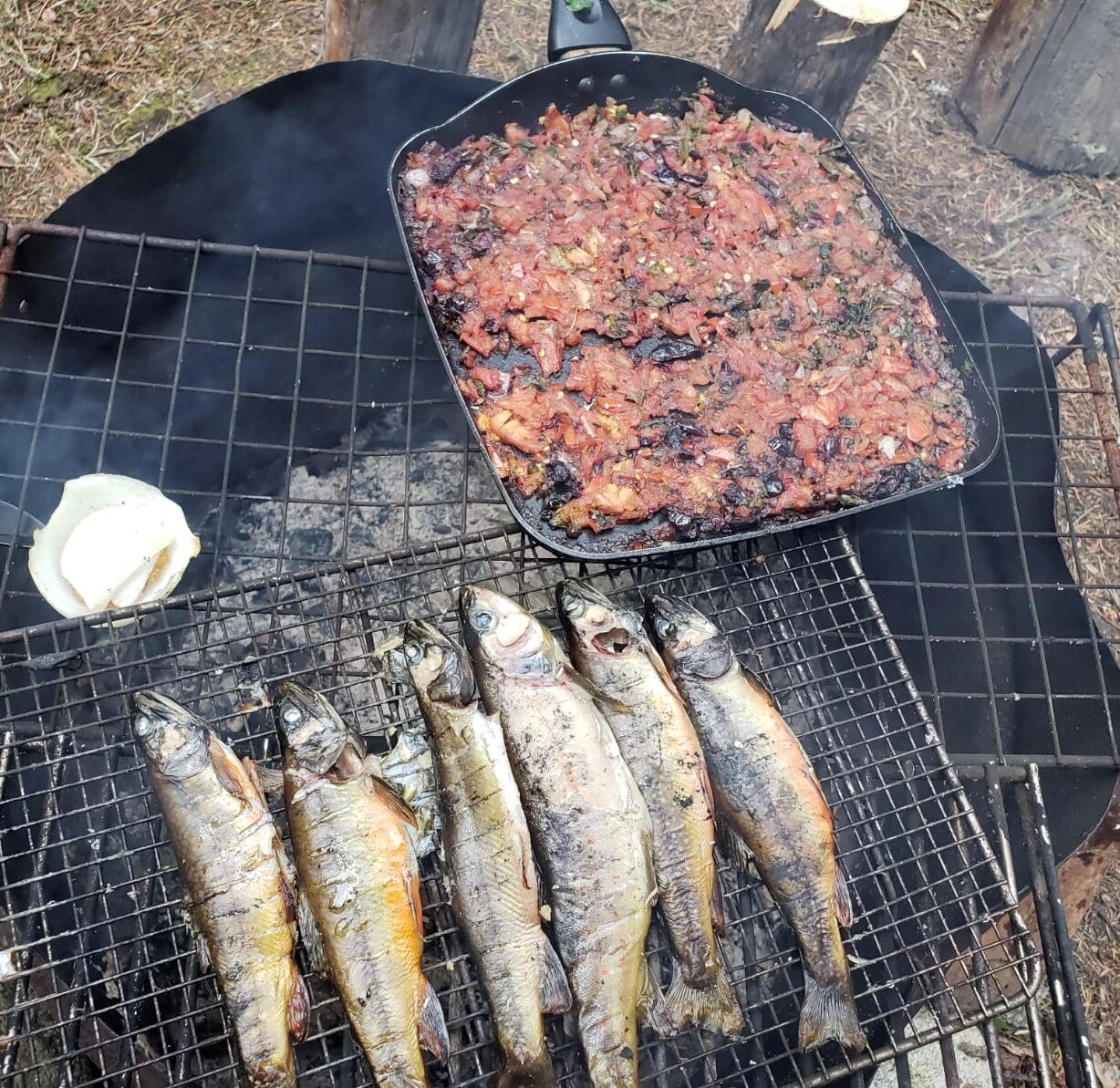
You spent a part of this summer with the Amish. What did you take away from that experience?
I was struck first by the structured approach of the Amish. They pray before each meal starts and after each meal ends. They eat together, unlike most Americans. Compared to the Amish, my eating habits were a bit decadent, and I gained a reputation as something of a foodie. “You like to eat good, Frankie”, they always told me. I worked hard that summer, but I never took breaks shorter than an hour. Fortunately, the Amish like dessert, so they were also quite fond of afternoon naps.
To my mind, eating should be a pleasurable experience, not a mere transaction to gain the calories we need to survive. In the United States, there’s very little concept of quality. Everything is about quantity. We are always in a rush. And our relationship with food is mostly passive and consumptive. We have lost touch with what makes us feel good. And one of the things that makes us feel good is eating from our own labor and sharing the fruits of our effort with those around us. In the Arabic world, a greedy person is said to have a big stomach (baá¹no kbir), while a virtuous person is said to “eat from his fatigue” (yakol min taÊ¿abo). This is something that is a lot easier to achieve on a farm, and it is one of the reason why I think the Amish are so content with their simple lifestyle.
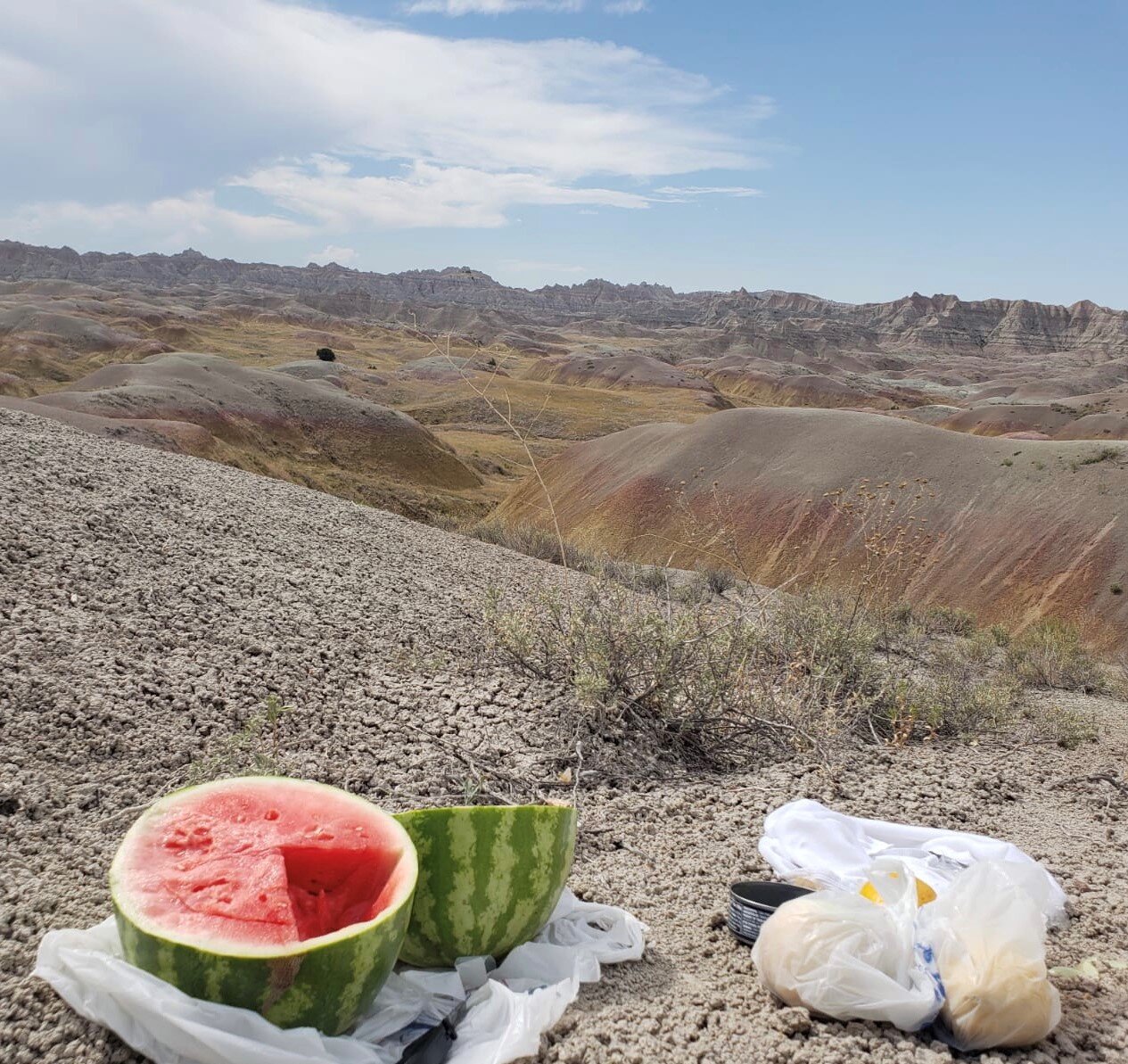
What is your favorite dish to cook?
I don’t have a favorite dish, but my favorite utensil is bread. I love it, for example, when everyone eats from a common bowl or dish. Potlucks have a similar appeal. When we eat this way, we function in the context of other people and their needs, and this forces us to develop more self-awareness.
During the last year, a lot of people have taken up cooking as a hobby or cooked more due to the limitations of eating out. How has the pandemic affected your culinary habits?
We saw the panic buying that took place. Every animal on the earth knows how to get food, except for people. When supply chains get disrupted, fear sets in. The Amish taught me a lot about hunting and agriculture. They know where food comes from because they live off of the land. Knowing how to produce your own food is not only empowering, it’s also vital to a well-lived life. There’s plenty of studies where lab animals demonstrate greater satisfaction upon acquiring their own food rather than having it delivered pre-packaged and pre-dosed. The less dependent I am on the marketplace, the more confident and healthy I feel.
What advice would you give people just learning how to cook or people with an interest in cooking but don’t know where to start?
Start with what you already know—everybody knows something—and cook only the meals that you like. If you cook something that you don’t like, either don’t cook it again or change how you prepare it. As you do this, your repertoire will expand. That’s it. If your really struggling, watch some videos online, and if you still can’t figure it out, you never will. Eat out or find a partner who likes to cook. You should also know every ingredient you put into your body. Stay away from processed foods.
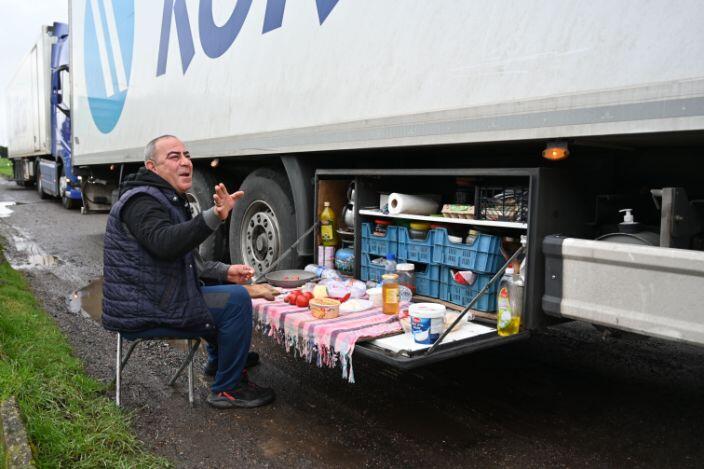
The last thing I will say is if cooking feels like a chore, it’s probably because you are not working in harmony with your needs. You work mechanically and consume compulsively. This is a social problem that has no easy answers, and each person must find a solution suitable to their particular circumstances. Let food be your guide. If you have time to cook and share a meal, then you are moving in a direction of balance and stability. Lastly, don’t be so hard on yourself. Relax, and take your time.

Great post, and thank you for sharing it.
ðŸ‘ðŸ¼